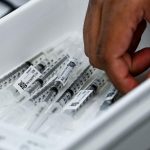Defective gene slows down brain cells
Within the European Union alone, about 3 million people are affected by an autism spectrum disorder (ASD). Some are only mildly affected and can live independent lives. Others have severe disabilities. What the different forms have in common is difficulty with social interaction and communication, as well as repetitive-stereotypic behaviors. Mutations in a few hundred genes are associated with ASD. One of them is called Cullin 3, and it is a high-risk gene: A mutation of this gene almost certainly leads to a disorder. But how, exactly, does this gene affect the brain? To learn more about it, Jasmin Morandell and Lena Schwarz, Ph.D. students at Professor Gaia Novarino’s research group, turned to mice whose Cullin 3 gene has been partially deactivated and compared them to their healthy siblings. Their results have just been published in the journal Nature Communications.











